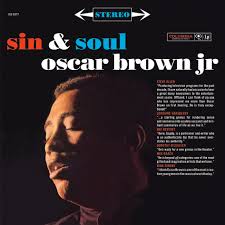I was joined on the DuPlex Mystery Jazz Hour of 12.28.17 by Martin Torgoff, author of Bop Apocalypse; Jazz, Race, The Beats and Drugs. It was an interesting, wide-ranging conversation that used music as a guideline, as per the playlist below.
PLAYLIST
Louis Armstrong, Muggles. Fred Robinson, trombone; Jimmy Strong, clarinet; Earl Hines, piano; Mancy Carr banjo, and Zutty Singleton on drums.
Mezz Mezzrow, Revolutionary Blues. Tommy Ladnier, Sidney de Paris, t / Mezz Mezzrow, cl / James P. Johnson, p / Teddy Bunn, g / Elmer James, b / Zutty Singleton, d.
Rosetta Howard, If You’re A Viper. With The Harlem Hamfats
Count Basie Orchestra, Every Tub.
Billie Holiday, I Must Have That Man. Buck Clayton, t / Edmond Hall, cl / Lester Young, ts / James Sherman, p / Freddy Green, g / Walter Page, sb / Joe Jones, d
Charlie Parker, Ko Ko. Curly Russell on bass and Max Roach on drums. Trumpeter Dizzy Gillespie played piano, but trumpet here instead of Miles Davis
Charlie Parker, Moose the Mooch. Miles Davis-tp, Lucky Thompson-tenor and Dodo Marmarosa-piano, Vic Macmillan-bass, Arvin Garrison-drums
Charlie Parker, Lover Man. Charlie Parker (alto sax), Howard McGhee (trumpet), Jimmy Bunn (piano), Bob Kesterson (bass), Roy Porter (drums)
Wardell Gray, The Chase. Bass-Don Bagley , Drums –Chico Hamilton, piano-Bobby Tucker B
- Tenor Saxophone –Dexter Gordon, Wardell Grey
Miles Davis, Round Midnight. Miles Davis – trumpet, Paul Chambers-bass, John Coltrane – tenor-Red Garland – piano, Philly Joe Jones – drums
John Coltrane, My Favorite Things. McCoy Tyner piano, Steve Davis bass, Elvin Jones drums









